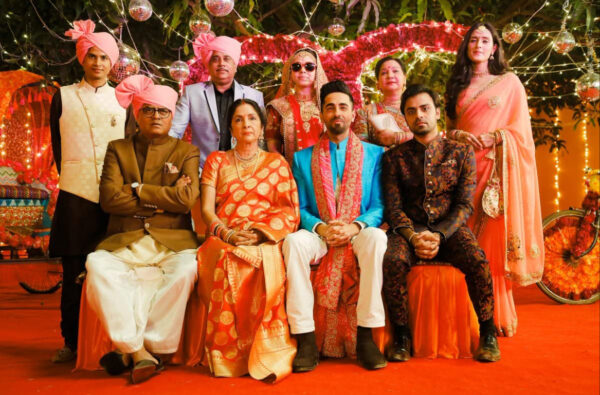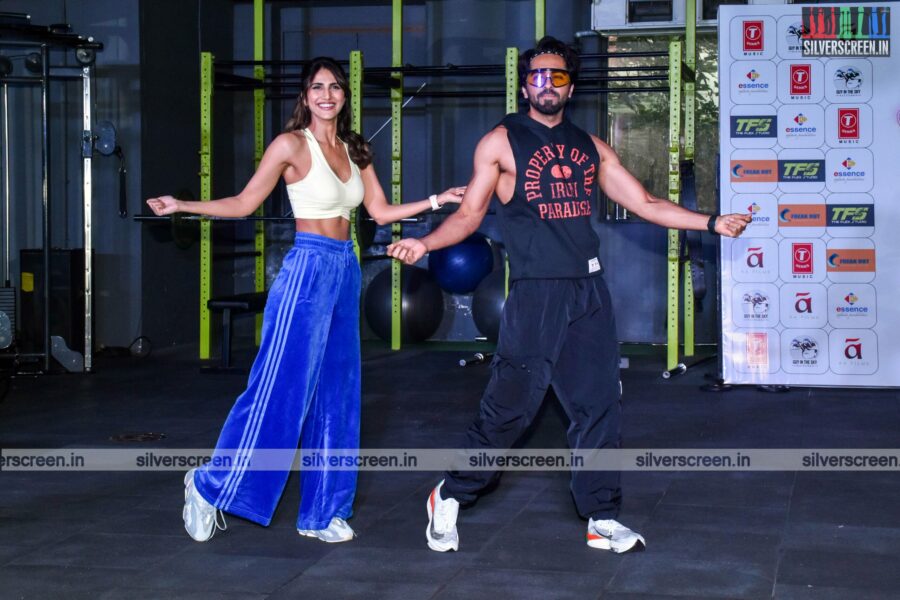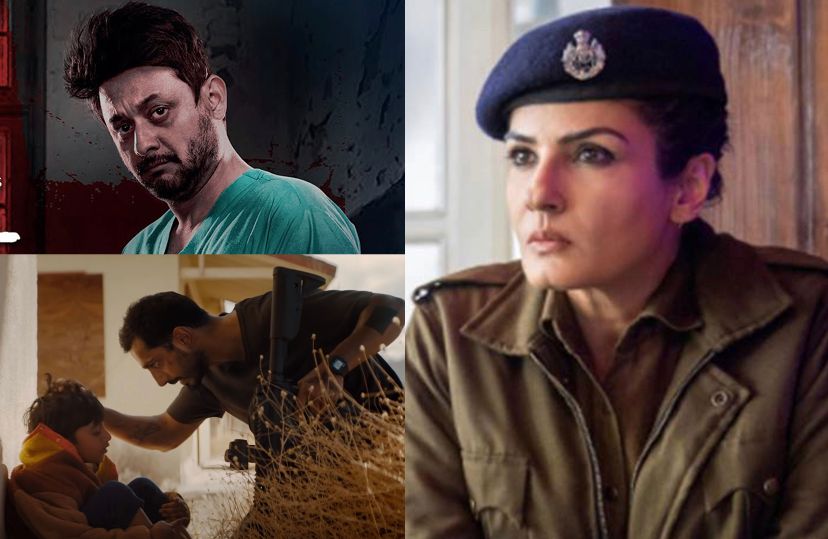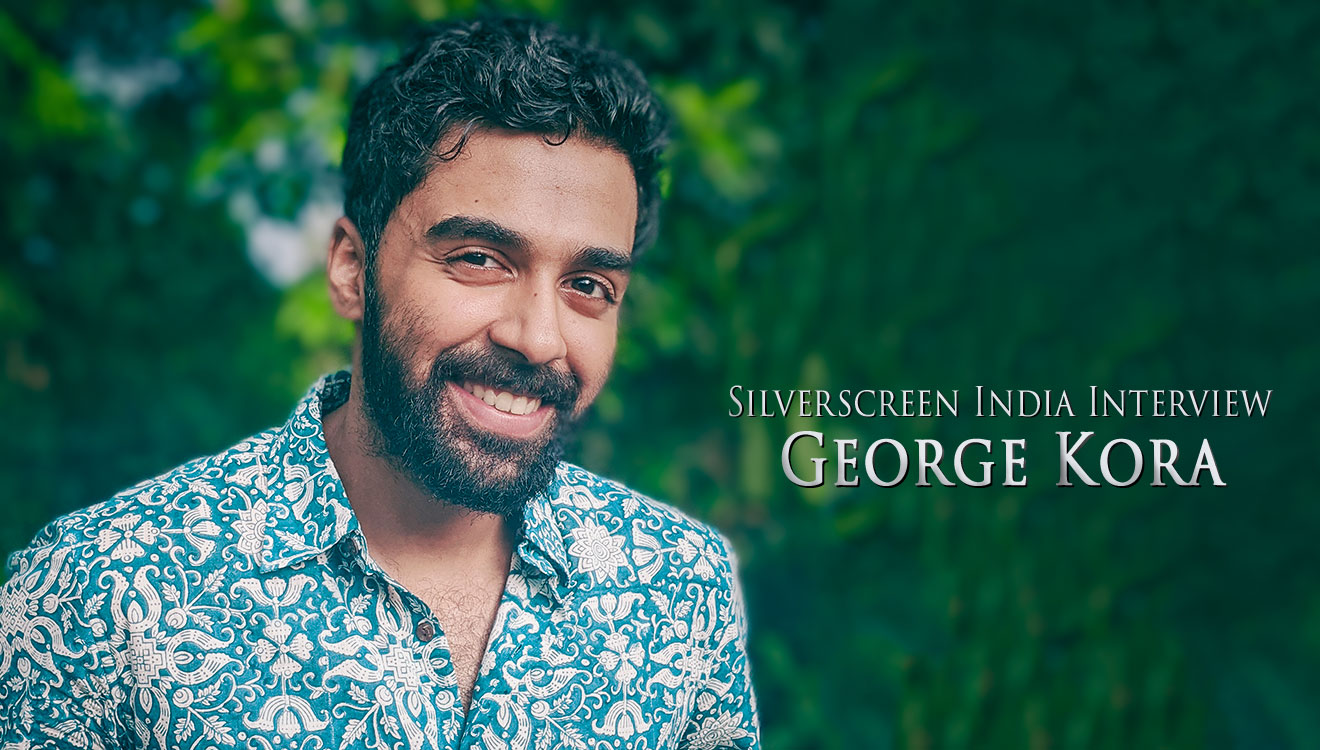Ayushmann Khurrana and Vaani Kapoor’s romantic comedy movie Chandigarh Kare Aashiqui is all set to release tomorrow and like many other films of Khurrana, this too revolves around a social issue. The trailer, which was released last month, showcases Khurrana as a gym trainer who falls in love with Maanvi, a Zumba instructor (Kapoor). However, his entire life is thrown into disarray when he finds out that she is a transwoman. He immediately loses his cool and tells her to leave as he cannot fathom what she just said. As comedy music begins to play, he is horrified and his friends ask him “In what way did you have sex?” alluding to the fact that they still see her as a man.
The film’s central conflict revolves around Khurrana’s character’s inability to come to terms with this ‘twist’. The jokes and conversations that follow are all about her body and identity.
And naturally, the internet had a lot of thoughts on this. While the trailer was lauded by some for raising awareness on the trans community, others wondered why Kapoor, who is a ciswoman is essaying the role of a trans person and they were also alarmed as they felt that it was a misrepresentation. Furthermore, the idea of a cisgendered heterosexual man approving and accepting a transwoman was also deemed as regressive.
Chandigarh Kare Aashiqui features a Trans Woman character. Ayushmann Khurana a cis het man falls in love with her, realises she is trans and loses his shit. Plot same as Pati, Patni aur Panga. Trans Woman played by cis actor.
Hoping against hope that this creates Trans Awarenes pic.twitter.com/WSMtXQx475— Dr. Aqsa Shaikh // اقصٰی شیخ (She/Her) (@doctorsaheba) November 8, 2021
“I wonder if the director knows who a trans woman is. By the looks of the trailer, it seems like a film full of transphobia and trans erasure,” said Harish, an equal rights activist.
Similarly, model and actor Arghya Adhikary said, “Vaani Kapoor is a good actor… but in the trailer, one cannot connect with the character when it is played by a person who is not actually trans. If you see foreign films, they always take real [trans] people for these roles… we don’t always have to do this but this is a sensitive issue”.
Despite activists and people on social media being wary of the film’s intentions and its effects on mainstream society, some pointed out that the issue is not necessarily about casting Kapoor, but rather, on the writing of the film.
“I am not someone who believes that only a trans person can play a trans person. But having said that, I would like to know if they even attempted to cast an authentic person,” said Harish. Instead, the problem arose when crude jokes and dialogues are made about her identity, he added. “It looks like a film full of transphobia. It is very premature to say what this film will be like finally but I found the trailer to be transphobic as Ayushmann Khurrana is making problematic statements,” he added.
History
The Hindi film industry has a long history of portraying trans people in its films. From Paresh Rawal in Tamanna to Akshay Kumar in Laxmii, many of these performances have been considered offensive and stereotypical. A few directors and actors believe that the portrayal of characters who identify as trans needs to be done authentically. “When you are making films Shubh Mangal Zyada Saavdhan or Chandigarh Kare Aashiqui, you should talk to people who identify as trans or gay. They should learn the real pain and struggle from them,” says Arghya.

Credits: IMDB
However, films also do create some amount of awareness on the topic. For mainstream cinema-watching audiences who otherwise may not have any knowledge, these films manage to bring the conversation to the table.
In the past decade, several Hindi films like Kapoor and Sons and Aligarh attempted to depict the LGBTQIA+ community as realistically as they could. This serves as a significant departure from earlier films like Dostana and Kal Ho Naa Ho, where being gay was merely used as a tool to evoke laughter. Both films use similar techniques (probably because it is the same production house)- an elderly ‘conservative’ woman faints when she sees two men being intimate. What’s worse, the men actually identify as heterosexual and are only pretending to be gay either for kicks or to get close to a girl.
Arghya says, “There are good and bad effects…But the thing is, if the information is going to be told in a twisted or wrong way, then it is bad. For instance, for a long time, people thought that gay people are effeminate and feminine because Bollywood portrayed them that way.”
Others, however, only believe that Hindi films have regressed in their manner of depicting the queer and trans community. “I can say that there is a shift in the Indian film industry but when it comes to the Hindi films it has only regressed. In Tamil, there’s Super Deluxe but in Hindi, we have moved from Agneepath to this film (Chandigarh Kare Aashiqui) which looks like a film that is going to mock trans people,” says Harish.
Filmmaker Tathagata Ghosh, who recently wrote, directed, and produced Miss Man, a film that explores the life of a transgender woman, the struggles of a queer individual, and what it’s like to be a queer person in the suburbs of India, feels the mainstream cinema often lacks in proper representation mostly due to the ‘box office race’.
“I don’t think even in recent times any mainstream film has done proper representation. There might be independent films that we do not know much about. But, mainstream cinema… I guess it is picking up but there is a long way to go. Keeping in mind the commercial success, people are playing it very safely. It is mainly the box office race that is keeping people from experimenting. I think if mainstream starts taking queer actors for queer roles then the acceptance will be much more and the story would also become more realistic. If the bigger films start doing it, then everyone will get the bravery to do the same,” he says.
“As filmmakers and artists, we are essentially representing a lot of people who cannot do so for themselves. queer actors are also great actors but people are just lazy to not look around and reach out to such people asking them to be a part of projects,” weighs in Ghosh further stating that he would not make a film if he does not get a queer actor to play a queer part. “Making a film with a queer artist acting in the role of a queer is pivotal. Otherwise, I would just post the story in a blog or something instead of casting someone else and misrepresenting it.”
Choices
Recently Ayushmann Khurrana posted a picture of him posing for GQ magazine on his Instagram. Sporting black nail polish, he captioned the image ‘gender fluid’.
While it remains unclear on what Khurrana’s intention is, Arghya says, “I don’t know if Ayushmann Khurrana is coming out as gender fluid and officially announcing it or if it is for the movie’s promotion. But if he is (coming out) then he can come out as he is. It is not necessary that he needs to wear makeup and nail polish.” Pointing out that clothes and makeup do not have any gender and the concept of gender fluidity should not be stereotyped, he adds, “It is a bold move by a mainstream actor. His fanbase is large and they love him, so obviously love his thought and attire. But it is wrong to think that gender fluidity means that they dress like this. Gender fluid people can be however they want. It should not be stigmatised.”
Recommended
This is not the first time that Khurrana has been called out for trivialising or misrepresenting important issues. Usually, it is with respect to his films. “He is a fantastic actor who has made some bad choices when it comes to scripts. He has also made some good choices. For instance, His film Dream Girl was very offensive,” says Harish. (Dream Girl is a 2019 Hindi film where Karam (Khurrana) is good at impersonating female voices so he is constantly cast as Sita and Radha in local religious plays. He then decides to use this skill to get a job at a women’s only call center where he dons the alias of Pooja to speak to lonely men.)
Now even with Chandigarh Kare Aashiqui, it is unclear whether the upcoming film will differ from what was seen in the trailer. “I am a fan of Ayushmann Khurrana and I think that the topics (in his films) are good and sensitive. It is needed to create awareness but if the movie should be made more sensitively, then the people who are writing the script should gather more knowledge,” says Arghya.
(Tathagata Ghosh inputs by Anindita Banerjee)



